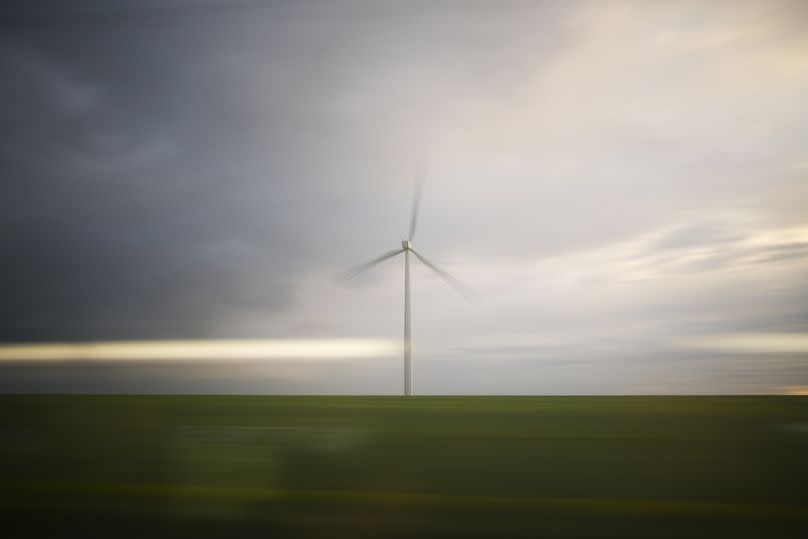In French snap elections, parties are overlooking the climate change nightmare

As a French citizen, the outcome of the first round of the French snap elections is a heartbreaker. As a climate campaigner, it is an absolute nightmare.
Whatever the final result and the final composition of the Parliament, climate and the environment have been blatantly absent from the campaign.
How could it be otherwise when the decision to revoke the current set of MPs was so sudden and with the far right closest to power than at any time since World War II?
Yet, climate change didn’t hit pause over the weekend: the parallel pictures of a “brown” far-right wave taking over the French electoral map, while torrents of mud were taking over alpine towns, in Northern Italy, in Austria, in Switzerland, were properly bloodcurdling.
And each and every day, the planet warms a fraction more, and we lose a bit more natural capital and ecosystems because of uncontrolled human activities. The environmental crisis doesn’t hold its breath as it waits for polling stations to close.
A stalemate could cause a stall
There are still several scenarios on the table for France, but none really are comforting: a far-right government is a serious threat to democracy, civil peace, and equality and will likely only damage the social fabric — who knows where the downward spiral would end?
But even a stalemate between three political parties will prevent meaningful political action and prevent fixing the issues that led France there, the causes of French citizens suffering and worries.

It would, at best, delay the looming crisis of the regime by a few months. French politics is not designed for compromise and coalition; the system as it is now feeds on clear-cut clashes, and chances of addressing the faults of the current constitution are growing thinner every day.
None of the potential scenarios will prioritize the transition to a climate neutral, nature positive economy, despite the huge benefits it could bring — provided the state plans for it, creates the condition to deliver on ambitions, puts serious money on the table while building confidence for private investors to follow in that direction.
Renewables surge: Green energy made up the majority of the EU’s electricity in 2023
Immigration, Ukraine, energy: Where does the French far right stand?
It is a problem for France, of course: the country may not be such a big direct greenhouse gas emitter, but it’s nonetheless the seventh economic power globally, with huge indirect emissions.
In fact, the French population on average consumes twice the available resources of the country each year.
French slump to escalate?
Putting a stop on current sustainable investments plans in France would see dozens of thousands of jobs destroyed, losing assets and infrastructures that will be needed for tomorrow’s markets, meaning durable recession, destroying the social fabric a little further.
It would send a terrible message externally: if France gives up on trying to engage in the sustainable transition, then why would its allies even try? The current sense of collective motivation in the “race to clean” would suffer from France giving up.
For Europe, a French slump could escalate to the supra-national level, creating the conditions for a blocking minority in the European Council against any green and/or social policy initiative, threatening the progress that we’ve seen over the past decade.

Slowing down now on the sustainable transition is a massive financial risk, deepening inequalities as the most vulnerable will suffer the most from climate change and from a poorly planned transition.
This is a very gloomy picture, but it should lead to renunciation. Since every 10th of a degree of warming makes a difference, and every species going extinct matter, climate and environment protection can’t be placed on a back burner, waiting for a more favourable governance to arise.
‘We are the first impacted by climate change’: Why Europe’s rural farmers support green policies
Where does the French left stand on immigration, Ukraine and climate policy?
The temptation to give up when the context becomes so difficult is strong and understandable, mental health can be at stake when the sense of helplessness is so strong.
But if you look at the big (planet and humanity big) picture, despair is only allowed for a short moment, then we must go back to work and continue the fight because hope is the strongest bond shared by all humanity.
'Be the change you wish to see'
Now more than ever, civil society actors should feel empowered to carry on and overcome the hardship of failing political leaders.
Citizens, NGOs, unions, academics, and business leaders must and can step up to push for positive change from the bottom up.
History is full of precedents for successful grassroots mobilisation: the fall of the Berlin Wall, the suffragettes, and the end of apartheid all came from civil society and private actors.
Equally important are the other levels of governance that private actors can lean on: the very concept of sustainable development was acknowledged by the UN in the 1970s, and we know that cities and regions are on the front line to effectively implement the green transformation through their procurements and investments.
For climate and sustainability advocates, a global shift to authoritarian governments will be the dawn of a new era, but there’s no need for fatal sentiments that this is the end of all our hopes and mobilisation, provided there’s a collective effort to imagine what the next strategy should look like.
Today, the motto “Be the change that you wish to see in the world” sounds more accurate than ever.
Adeline Rochet is Programme Leader at the Corporate Leader Group Europe within the Cambridge Institute for Sustainability Leadership (CISL).
At Euronews, we believe all views matter. Contact us at view@euronews.com to send pitches or submissions and be part of the conversation.


